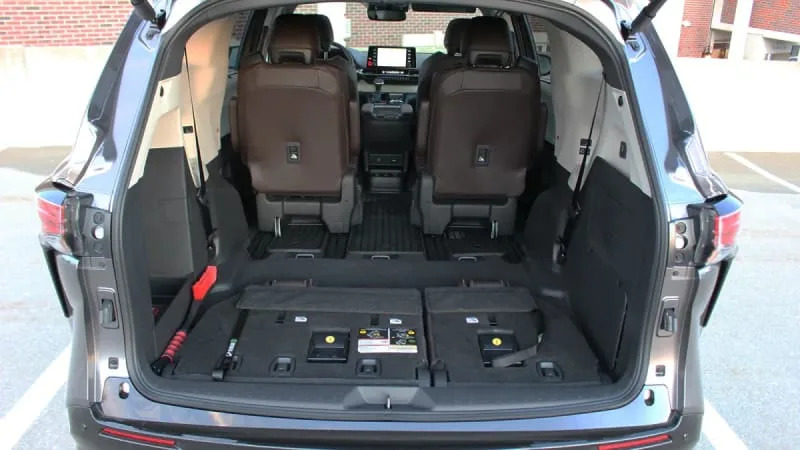The Autoblog long-term 2023 Toyota Sienna is now in my possession. Here, it will enjoy a respite from school drop-offs and cereal spills (OK, no guarantees on the latter). Instead, I plan to use the Sienna like a truck — duty that may not necessarily come naturally to the hybrid minivan, but one it appears capable of handling. Not convinced? Let me lay it out for you.
Let’s talk pros. For starters, the cargo area in this thing is massive. Remember, a minivan is basically a three-row crossover with sliding doors. Consequently, it’s long and wide enough to accommodate 4×8 sheets of plywood — something many a modern truck bed can’t do without accessories. It also offers a hefty GVWR of 6,102 pounds, which allows plenty of headroom over its 4,500-pound curb weight for hauling cargo. Normally, that number would be 6,170 pounds, but the extra goodies installed on our tester drop the total by 68 pounds. And since it’s a minivan, the interior is meant to be abused. That’s three points in favor.

Now, the drawbacks. For starters, robust or not, seat upholstery is not going to hold up to wood splinters or pointy metal stuff, and unfortunately, the Sienna’s interior is configured in such a way that it’s virtually impossible to avoid using the seats for cargo management some way or another. This brings us to the Sienna’s most glaring cargo-hauling weakness: the second row does not fold flat. Adding insult to industry, it’s not meant to be removed from the car. Is it physically possible? Of course, but because the seats contain safety equipment and electronics, Toyota recommends against their removal entirely. That’s a bit of a bummer, but not a deal-breaker.
The Sienna will be in and out of my hands for a couple of weeks as we get it prepped for winter duty. Mmmmm… project season! I can’t wait.
Related Video
Read the full article here


